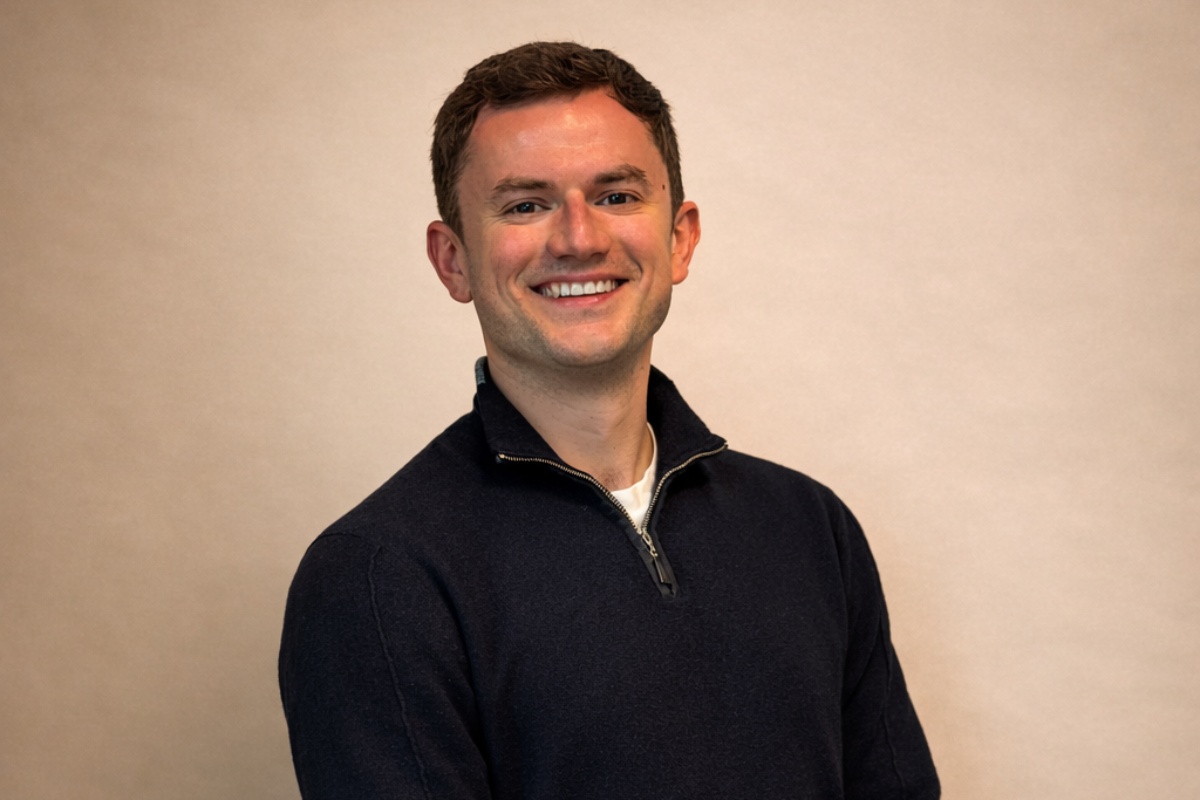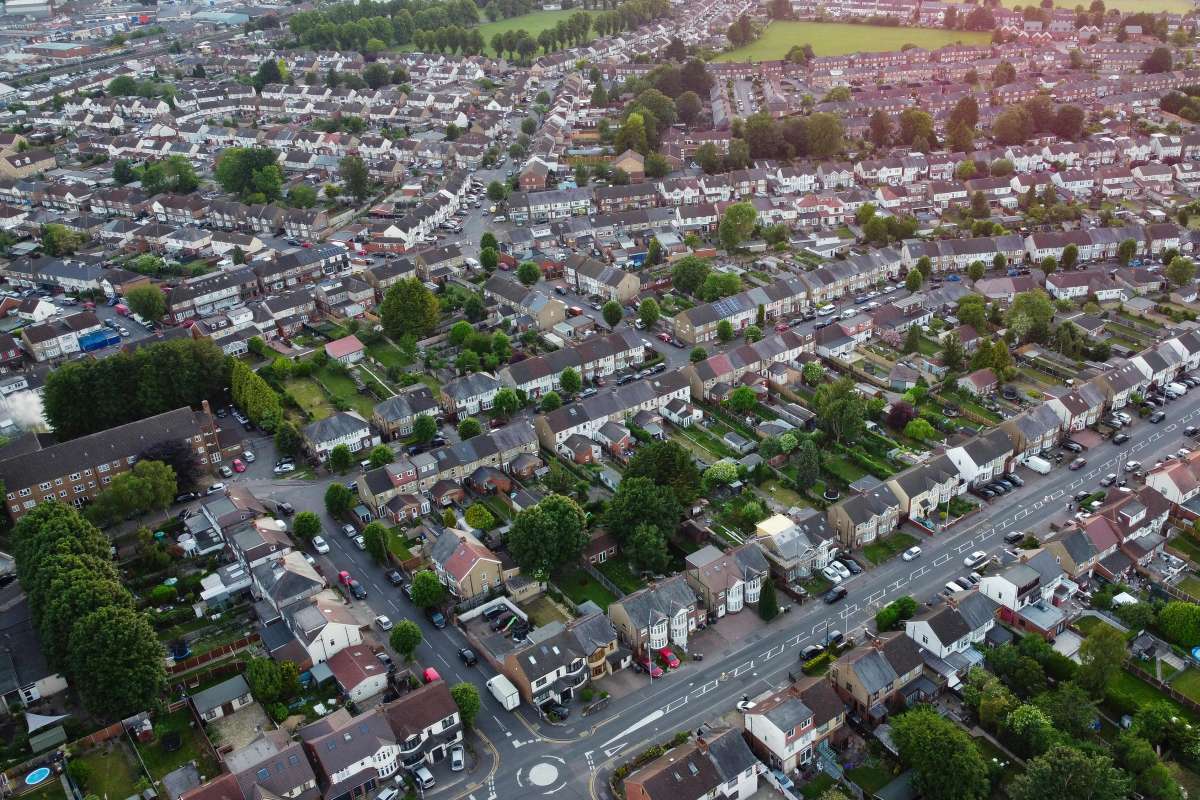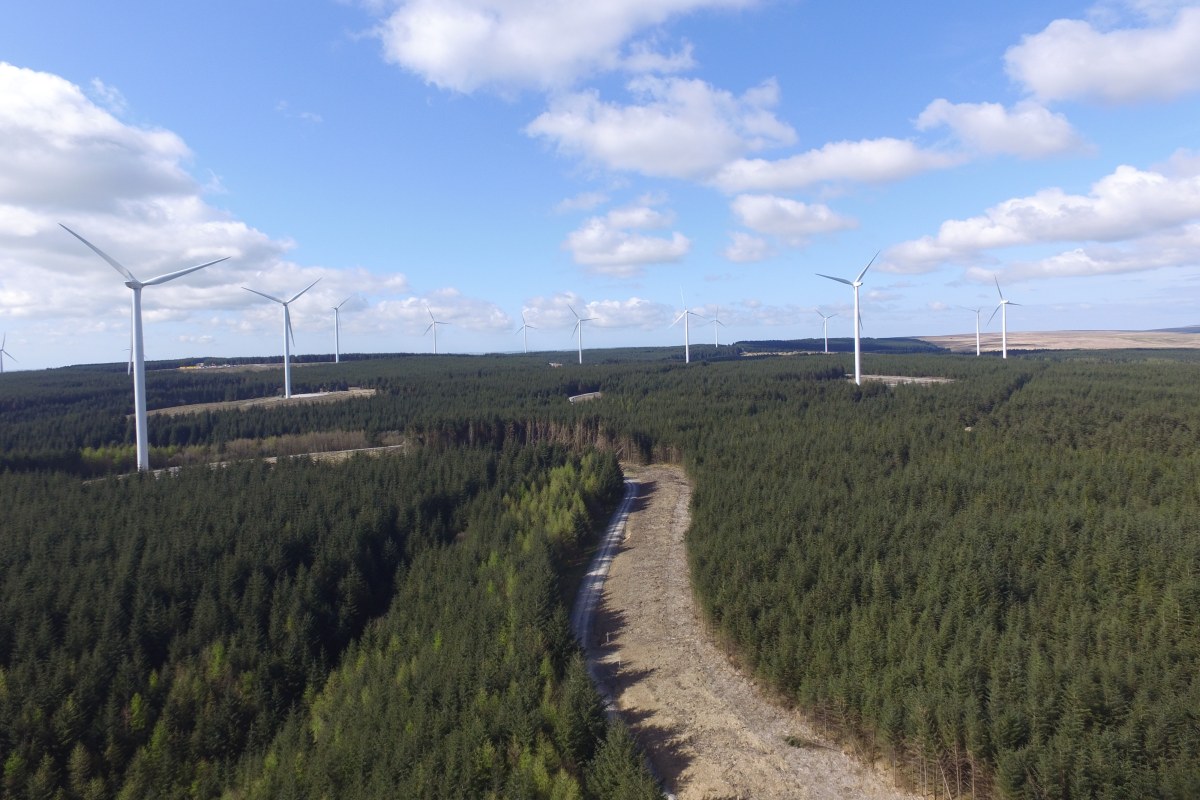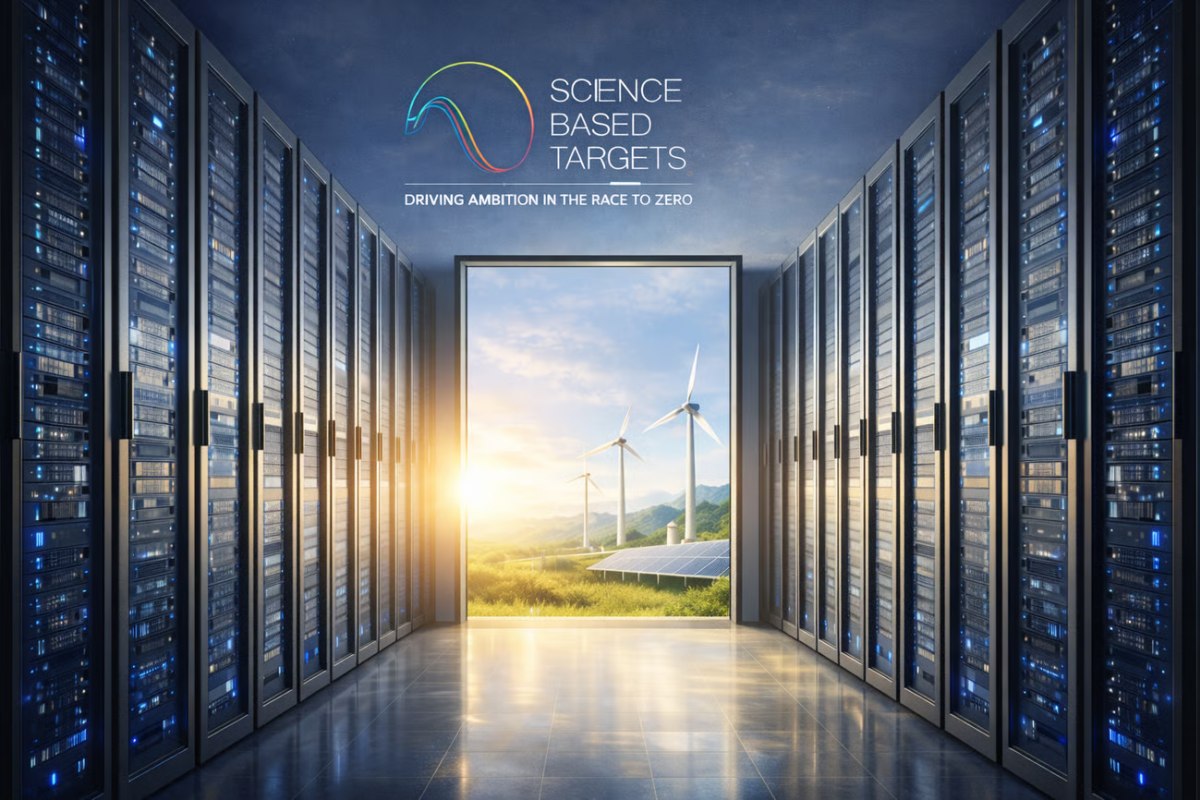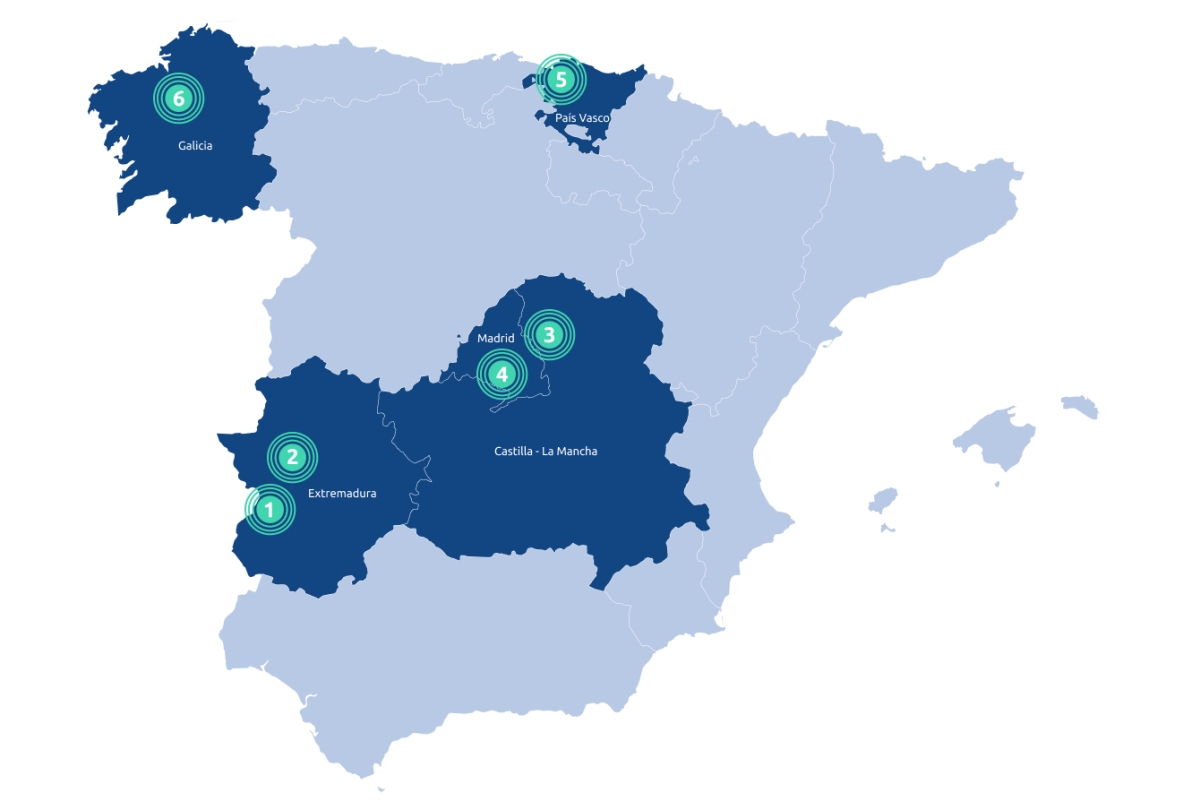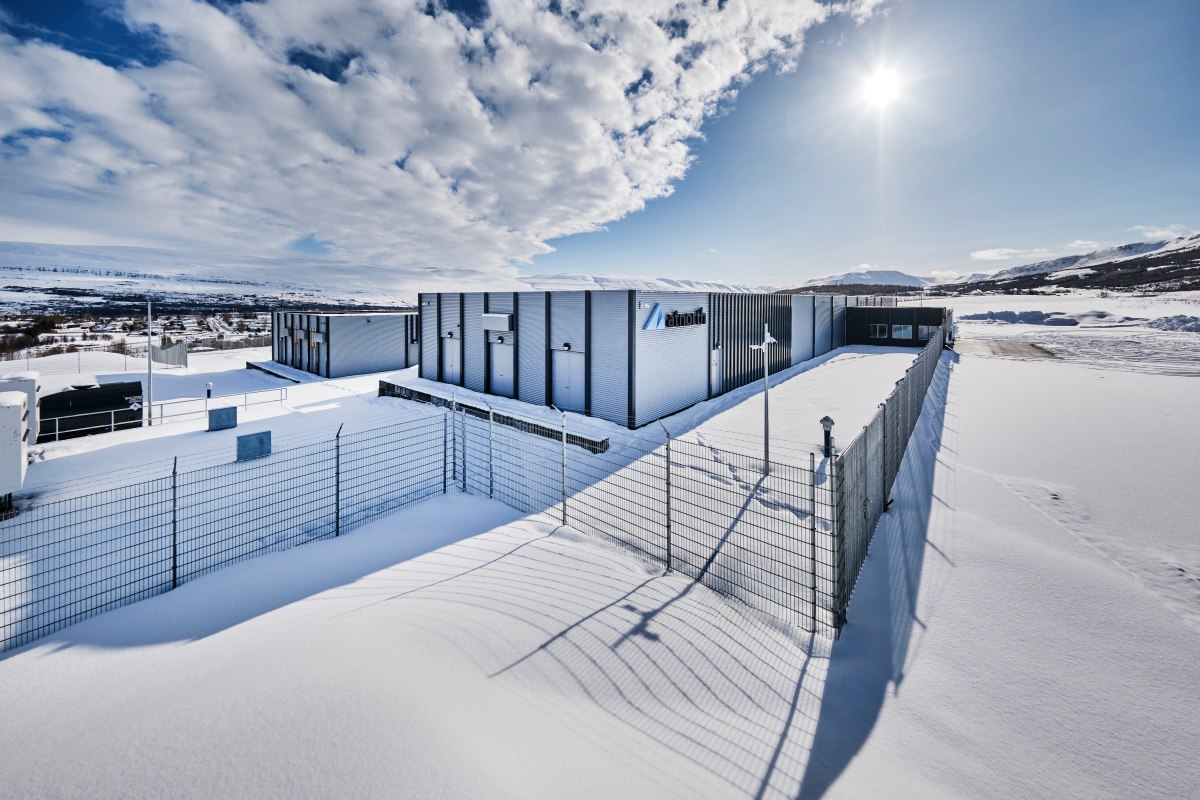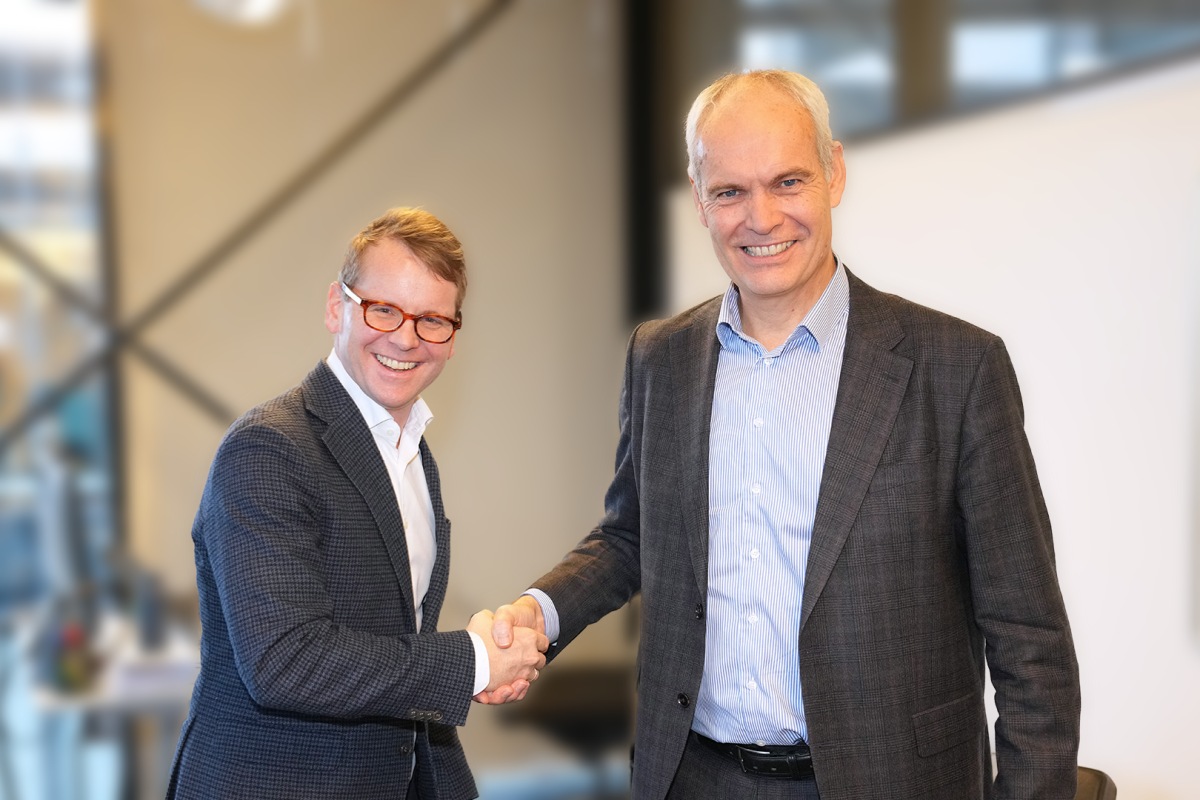Sustainable Infrastructure: Building Resilient, Low-Carbon Projects
Data Centre Build News & Insights
Sustainable Infrastructure: Building Resilient, Low-Carbon Projects
nLighten's Stuttgart data centre to reuse heat
European data centre operator nLighten's data centre in Stuttgart, Germany, is set to feed excess heat into the local heating network, supporting the municipal it.schule training centre and DEKRA buildings in the Möhringen district.
To deliver the project, nLighten is partnering with Wärmelösungen Synergiepark Stuttgart, a joint venture between Stadtwerke Stuttgart and e-con AG.
The companies have signed a cooperation agreement, with the scheme expected to go live later in 2026. It has received funding from the German Federal Ministry for Economic Affairs and Energy.
The recovered heat will be sold to Synergiepark Stuttgart, which will process and distribute it through an expanded heating network. The infrastructure is designed to deliver up to 1.8MW of heat output.
Closed-loop system for heat recovery
A closed-loop water system will capture heat from the data centre’s servers and heat pumps will raise the temperature to the level required by end users before distribution.
nLighten states that the Stuttgart project follows a similar initiative in Eschborn and forms part of its wider approach to reducing emissions by combining renewable electricity use with heat reuse.
Andreas Herden, Managing Director Germany at nLighten, comments, “The heat reuse project in Stuttgart is another milestone for nLighten and demonstrates how data centres can become active shapers of the energy transition.
"Following our successful project in Eschborn, we are once again proving that Europe’s digital infrastructure can be designed not only to be powerful and connected, but also sustainable.”
Ulf Hummel, Managing Director of Wärmelösungen Synergiepark Stuttgart, adds, “The excess heat project with nLighten creates an added value for everyone involved: it delivers climate-friendly heat for our customers, strengthens the data centre’s sustainable business model, and represents an important step towards decarbonising Stuttgart’s heat supply.
"As a young company, Wärmelösungen Synergiepark Stuttgart set out to provide climate-neutral heat to the entire industrial area in Vaihingen and Möhringen. Connecting the data centre is the reward for the many years of planning.”
For more from nLighten, click here.
Joe Peck - 12 February 2026
Commercial Real Estate: Property Developments, Trends & Infrastructure
Data Centre Build News & Insights
Data Centre Business News and Industry Trends
Sustainable Infrastructure: Building Resilient, Low-Carbon Projects
BCS Consultancy launches Sustainable Development Service
BCS Consultancy, a global data centre consultancy, has launched a new Sustainable Development Service and appointed James Rogers Jones as Head of Sustainable Development.
The new service formalises sustainability as a core element of BCS Consultancy’s project management, cost management, commercial advisory, and technical delivery work, rather than a standalone offering.
The move reflects increasing client demand for advice that balances commercial delivery with environmental impact, community expectations, and long-term operational resilience.
James joins BCS Consultancy with experience supporting major data centre operators, including Digital Realty, Google, GreenScale, and AtlasEdge. His work has focused on sustainability strategy, regulatory compliance, and operational performance across complex data centre portfolios.
James comments, “Data centres underpin our modern economy and are one of the most impactful industries in the world. These assets can deliver enormous value to both clients and the communities they serve.
"Sustainability should no longer be framed primarily around ESG-signalling or long-term carbon targets; instead, it is increasingly becoming linked to energy security, price stability, and operational resilience.”
Responding to community and planning pressures
The Sustainable Development Service will support clients with long-term decision-making, including data centre roadmaps, portfolio strategy, sustainability frameworks, and policy advisory.
It is also intended to address growing development pressures, as community opposition and project cancellations increase across several data centre markets.
BCS Consultancy points to findings from its forthcoming 2026 Data Centre Trends Report, which indicate that communities are seeking more than renewable energy commitments when considering data centre developments.
Concerns increasingly relate to water usage, local electricity pricing, and wider quality of life impacts. The consultancy states that operators must demonstrate their role as responsible local stakeholders alongside meeting environmental targets.
The launch of the service forms part of BCS Consultancy’s wider approach to supporting clients through continued growth in global digital infrastructure and increased demand driven by AI workloads.
The consultancy positions sustainability as a contributor to long-term value for both clients and host communities.
Chris Coward, Chief Operating Officer at BCS Consultancy, says, “Our clients are facing increasingly complex challenges from power constraints and planning risk to community scrutiny and long-term resilience. They need a simpler way to achieve their sustainability goals with project managers, cost managers, and technical experts who understand sustainability and can deliver outcomes as part of their day job.
“The launch of our Sustainability Service is about delivering better outcomes and aligns with how our clients expect us to operate. James brings both credibility and clarity of thinking, and his appointment strengthens our ability to support responsible, long-term decision-making across the entire lifecycle.”
For more from BCS Consultancy, click here.
Joe Peck - 2 February 2026
Data Centre Architecture Insights & Best Practices
Data Centre Build News & Insights
Exploring Modern Data Centre Design
Sustainable Infrastructure: Building Resilient, Low-Carbon Projects
Data centre waste heat could warm millions of UK homes
New analysis from EnergiRaven, a UK provider of energy management software, and Viegand Maagøe, a Danish sustainability and ESG consultancy, suggests that waste heat from the next generation of UK data centres could be used to heat more than 3.5 million homes by 2035, provided the necessary heat network infrastructure is developed.
The research estimates that projected growth in data centres could generate enough recoverable heat to supply between 3.5 million and 6.3 million homes, depending on data centre design efficiency and other technical factors. The report argues that without investment in large-scale heat network infrastructure, much of this heat will be lost.
The study highlights a risk that the UK will expand data centre and AI infrastructure without making use of the waste heat produced, missing an opportunity to reduce household energy costs and improve energy resilience.
“Our national grid will be powering these data centres - it’s madness to invest in the additional power these facilities will need and waste so much of it as unused heat, driving up costs for taxpayers and bill payers,” argues Simon Kerr, Head of Heat Networks at EnergiRaven. “Microsoft has said it wants its data centres to be ‘good neighbours’ - giving heat back to their communities should be an obvious first step.”
Regional opportunities and proximity to housing
The research points to examples where data centres are located close to both new housing developments and areas affected by fuel poverty. Around Greater Manchester, for example, 15,000 homes are planned in the Victoria North development, with a further 14,000 to 20,000 planned in Adlington. The area also includes more than a dozen existing data centres, with additional facilities planned.
According to the analysis, these sites could potentially supply heat to nearby new housing, reducing the need for individual gas boilers and supporting lower-carbon heating. Moreover, the study maps how similar patterns could be replicated across the UK, linking waste heat sources with residential demand through heat networks.
Using waste heat for space heating is common in parts of northern Europe, particularly in Nordic countries. There, waste heat from sources such as data centres, power plants, incinerators, and sewage treatment facilities is often connected to district heat networks, supplying homes via heat interface units instead of individual boilers.
In the UK, a number of cities have been designated as Heat Network Zones, where heat networks have been identified as a lower-cost, low-carbon heating option. From 2026, Ofgem will take over regulation of heat networks and new technical standards will be introduced through the Heat Network Technical Assurance Scheme, aimed at improving consumer and investor confidence.
Heat networks, regulation, and policy context
The Warm Homes Plan includes a target to double the proportion of heat demand met by heat networks in England to 7% by 2035, with longer-term ambitions for heat networks to supply around 20% of heat by 2050. The plan also includes funding support for heat network development.
However, Simon argues that current policy does not fully reflect the scale of opportunity from large waste heat sources, continuing, “Current policy in the UK is nudging us towards a patchwork of small networks that might connect heat from a single source to a single housing development. If we continue down this road, we will end up with cherry-picking and small, private monopolies, rather than national infrastructure that can take advantage of the full scale of waste heat sources around the country.
“We know that investment in heat networks and thermal infrastructure consistently drives bills down over time and delivers reliable carbon savings, but these projects require long-term finance.
"Government-backed low-interest loans, pension fund investment, and institutions such as GB Energy all have a role to play in bridging this gap, as does proactivity from local governments, who can take vital first steps by joining forces to map out potential networks and start laying the groundwork with feasibility studies.”
Peter Maagøe Petersen, Director and Partner at Viegand Maagøe, adds, “We should see waste heat as a national opportunity. In addition to heating homes, heat highways can also reduce strain on the electricity grid and act as a large thermal battery, allowing renewables to keep operating even when usage is low and reducing reliance on imported fossil fuels.
"As this data shows, the UK has all the pieces it needs to start taking advantage of waste heat - it just needs to join them together. With denser cities than its Nordic neighbours and a wealth of waste heat on the horizon, the UK is a fantastic place for heat networks. It needs to start focusing on heat as much as it does electricity - not just for lower bills, but for future jobs and energy security.”
Joe Peck - 26 January 2026
Data Centre Build News & Insights
Renewables and Energy: Infrastructure Builds Driving Sustainable Power
Sustainable Infrastructure: Building Resilient, Low-Carbon Projects
RWE sustainably powers Global Switch’s London DC
RWE, a German renewable energy company, has signed an eight-year power purchase agreement (PPA) with Global Switch, an owner, operator, and developer of data centres in Europe and Asia-Pacific.
Under the terms of the agreement, Global Switch will source electricity produced from RWE’s Brechfa Forest West onshore wind farm to power its data centre in the heart of London’s Docklands. From January 2026 until 2033, RWE will supply a total of 70 gigawatt hours of clean electricity per year.
The Brechfa Forest West onshore wind farm is located in southwest Wales and was commissioned in 2018. It comprises 28 turbines and has a generation capacity of 57.4 megawatts.
Ulf Kerstin, Chief Commercial Officer at RWE Supply & Trading, notes, “In view of the ongoing digitalisation and the increasing use of artificial intelligence in almost all areas of life, the number of data centres and their energy requirements are growing.
"Some data centre operators are already relying on the use of low-carbon electricity from RWE, and we are delighted to have gained Global Switch as another partner.”
Peter Domeney, COO at Global Switch, comments, “Our agreement with RWE is a critical next step on our journey to purchasing 100% renewable energy by 2030 and to the setting of new standards for what a sustainable, environmentally-conscious data centre can look like.
"It’s an agreement that brings together the forests of Wales and the most powerful, most advanced AI and high-performance compute deployments in the world.”
Wind power from Wales to London
Global Switch’s London data centre, set to benefit from this agreement, is located in the heart of the city’s business district, with access to 224 Mega Volt Ampere (MVA) - or approximately 224 MW - of secured power and currently undergoing a programme of densification and expansion.
Last year, it was selected by CoreWeave to host one of Europe’s largest deployments of NVIDIA H100 and H200 GPUs, as well as being the site of the company’s liquid cooling showcase - a presentation of the latest liquid cooling technologies, some of which had never before been deployed in Europe.
Global Switch is targeting 100% renewable energy by 2030, and annualised power usage efficiency (PUE) of 1.2 across its European sites.
In 2025, its emissions reduction targets were approved by the Science Based Targets initiative and its sites were inducted into the voluntary European Code of Conduct for Energy Efficiency in Data Centres initiative.
RWE says it is investing billions of euros in expanding its generation portfolio, particularly in offshore and onshore wind, solar energy, and battery storage. This is complemented by its global energy trading business.
The company says that, thanks to its "integrated portfolio of renewables, battery storage, and flexible generation, [it] is well positioned to meet the growing global demand for electricity," which is being driven by the increasing use of artificial intelligence and further electrification.
Joe Peck - 23 January 2026
Data Centre Build News & Insights
Data Centre Infrastructure News & Trends
Enterprise Network Infrastructure: Design, Performance & Security
Sustainable Infrastructure: Building Resilient, Low-Carbon Projects
Huber+Suhner expands sustainable packaging drive
Huber+Suhner, a Swiss fibre optic cable manufacturer, has broadened the use of recycled and recyclable packaging across its fibre optic portfolio as part of its ongoing sustainability programme.
The company has removed more than 743,000 single-use plastic bags, substituted approximately 1.5 million cable ties, and replaced 35,500 blister packages with recycled polyethylene terephthalate. 11 product families are now covered by the initiative.
Lana Ollier, Head of Global Sustainability at Huber+Suhner, says, “Removing single-use plastic items and moving more product families to recyclable and sustainable materials show what’s possible when sustainability is designed in, not added on.”
Less waste and lower packaging emissions
The measures include FSC-certified, recyclable paper packaging for connector and cable assemblies, and recycled PET for fibre modules including LISA, SYLFA HD, and IANOS.
Huber+Suhner reports improvements in handling, dust protection, and transport weight. Verified lifecycle assessments indicate that blister packaging emissions have been reduced by around 50% for selected modules when compared with traditional plastics.
The changes are intended to cut on-site material waste and ease installation through simplified paper formats and stackable blister trays.
Following positive feedback, the company says its sustainable packaging approach will extend to 17 fibre optic product families during 2026.
For more from Huber+Suhner, click here.
Joe Peck - 19 January 2026
Data Centre Architecture Insights & Best Practices
Data Centre Build News & Insights
Exclusive
Exploring Modern Data Centre Design
Sustainable Infrastructure: Building Resilient, Low-Carbon Projects
The blueprint for tomorrow’s sustainable data centres
In this exclusive article for DCNN, Francesco Fontana, Enterprise Marketing and Alliances Director at Aruba, explores how operators can embed sustainability, flexibility, and high-density engineering into data centre design to meet the accelerating demands of AI:
Sustainable design is now central to AI-scale data centres
The explosive growth of AI is straining data centre capacity, prompting operators to both upgrade existing sites and plan large-scale new-builds. Europe’s AI market, projected to grow at a 36.4% CAGR through 2033, is driving this wave of investment as operators scramble to match demand.
Operators face mounting pressure to address the environmental costs of rapid growth, as expansion alone cannot meet the challenge. The path forward lies in designing facilities that are sustainable by default, while balancing resilience, efficiency, and adaptability to ensure data centres can support the accelerating demands of AI.
The cost of progress
Customer expectations for data centres have shifted dramatically in recent years. The rapid uptake of AI and cloud technologies is fuelling demand for colocation environments that are scalable, flexible, and capable of supporting constantly evolving workloads and managing surging volumes of data.
But this evolution comes at a cost. AI and other compute-intensive applications demand vast amounts of processing power, which in turn place new strains on both energy and water resources. Global data centre electricity usage is projected to reach 1,050 terawatt-hours (TWh) by 2026, placing data centres among the world’s top five national consumers.
This rising consumption has put data centres firmly under the spotlight. Regulators, customers, and the wider public are scrutinising how facilities are designed and operated, making it clear that sustainability can no longer be treated as optional. To survive amongst these new expectations, operators must balance performance with environmental responsibility, rethinking infrastructure from the ground up.
Steps to a next-generation sustainable data centre
1. Embed sustainability from day one
Facilities designed 'green by default' are better placed to meet both operational and environmental goals, and this why sustainability can’t be an afterthought. This requires renewable energy integration from the outset through on-site solar, hydroelectric systems, or long-term clean power purchase agreements.
Operators across Europe are also committing to industry frameworks like the Climate Neutral Data Centre Pact and the European Green Digital Coalition, ensuring progress is independently verified. Embedding sustainability into the design and operation of data centres not only reduces carbon intensity but also creates long-term efficiency gains that help manage AI’s heavy energy demands.
2. Build for flexibility and scale
Modern businesses need infrastructures that can grow with them. For operators, this means creating resilient IT environments with space and power capacity to support future demand. Offering adaptable options - such as private cages and cross-connects - gives customers the freedom to scale resources up or down, as well as tailor facilities to their unique needs.
This flexibility underpins cloud expansion, digital transformation initiatives, and the integration of new applications - all while helping customers remain agile in a competitive market.
3. Engineering for the AI Workload
AI and high-performance computing (HPC) workloads demand far more power and cooling capacity than traditional IT environments, and conventional designs are struggling to keep up.
Facilities must be engineered specifically for high-density deployments. Advanced cooling technologies, such as liquid cooling, allow operators to safely and sustainably support power densities far above 20 kW per rack, essential for next-generation GPUs and other AI-driven infrastructure.
Rethinking power distribution, airflow management, and rack layout ensures high-density computing can be delivered efficiently without compromising stability or sustainability.
4. Location matters
Where a data centre is built plays a major role in its sustainability profile, as regional providers often offer greater flexibility and more personalised services to meet customer needs.
Italy, for example, has become a key destination for new facilities. Its cloud computing market is estimated at €10.8 billion (£9.4 billion) in 2025 and is forecast to more than double to €27.4 billion (£23.9 billion) by 2030, growing at a CAGR of 20.6%. Significant investments from hyperscalers in recent years are accelerating growth, making the region a hotspot for operators looking to expand in Europe.
5. Stay compliant with regulations and certifications
Strong regulatory and environmental compliance is fundamental. Frameworks such as the General Data Protection Regulation (GDPR) safeguard data, while certifications like LEED (Leadership in Energy and Environmental Design) demonstrate energy efficiency and environmental accountability.
Adhering to these standards ensures legal compliance, but it also improves operational transparency and strengthens credibility with customers.
Sustainability and performance as partners
The data centres of tomorrow must scale sustainably to meet the demands of AI, cloud, and digital transformation. This requires embedding efficiency and adaptability into every stage of design and operation.
Investment in renewable energy, such as hydro and solar, will be crucial to reducing emissions. Equally, innovations like liquid cooling will help manage the thermal loads of compute-heavy AI environments. Emerging technologies - including agentic AI systems that autonomously optimise energy use and breakthroughs in quantum computing - promise to take efficiency even further.
In short, sustainability and performance are no longer competing objectives; together, they form the foundation of a resilient digital future where AI can thrive without compromising the planet.
For more from Aruba, click here.
Joe Peck - 2 January 2026
Data Centre Build News & Insights
Renewables and Energy: Infrastructure Builds Driving Sustainable Power
Sustainable Infrastructure: Building Resilient, Low-Carbon Projects
Datacenter United gains SBTi emissions validation
Datacenter United, an independent Belgian data centre operator, has confirmed that its near-term emissions reduction targets have been validated by the Science Based Targets initiative (SBTi), a global partnership that helps companies set emissions reduction targets aligned with climate science.
The approval aligns the company’s targets with the 1.5°C pathway, the most stringent scenario within the SBTi framework.
The company says its investment programme will continue to prioritise energy efficiency, cooling approaches suited to higher density environments, responsible water use, and infrastructure designed to support AI workloads.
Friso Haringsma, CEO of Datacenter United, says, “The SBTi validation confirms that our sustainability strategy is not only ambitious, but also substantively sound.
"We are convinced that digital progress and sustainable growth can reinforce each other. This recognition motivates us to continue on this path consistently.”
Sustainability commitments and investment programme
The SBTi validation forms part of a wider sustainability framework in place at Datacenter United. The company holds ISO 14001 certification and is a signatory to the Climate Neutral Data Centre Pact. It also works with external organisations including EcoVadis, Greenly, and The Green Grid.
Datacenter United has linked the validation to its ongoing €120 million (£105 million) investment programme, which is focused on efficiency improvements, reduced energy consumption, water management, and infrastructure designed for future demand.
The company says the milestone supports its longer-term approach to operating data centres in Belgium with an emphasis on reliability, scalability, and environmental performance.
For more from Datacenter United, click here.
Joe Peck - 19 December 2025
Data Centre Build News & Insights
Data Centre Projects: Infrastructure Builds, Innovations & Updates
Sustainable Infrastructure: Building Resilient, Low-Carbon Projects
Nostrum details availability of new data centres in Spain
Nostrum Data Centers, a developer of sustainable data centre infrastructure across Spain and Europe, has confirmed that its data centre assets in Spain are scheduled to become available in 2027, as the company develops new capacity to support AI, cloud, and high-performance computing workloads.
The company, part of Nostrum Group, is planning up to 500 MW of IT capacity across multiple sites in Spain. According to Nostrum, around 300 MW of power capacity has already been secured, with further phases intended to increase this figure over time.
Earlier this month, Nostrum announced that AECOM had been appointed to design and manage a large data centre campus in Badajoz. The project represents one of several developments underway, with the Badajoz site forming part of a wider national rollout.
Capacity rollout and site strategy
Nostrum is developing six data centre sites across Spain, selected to take advantage of subsea connectivity routes, available power infrastructure, and energy costs. The company says this approach is intended to support phased deployment and future expansion as demand grows.
The facilities are designed to support higher density computing, with Nostrum stating a target PUE of 1.1 and zero water usage for cooling. The company adds that its developments are intended to reduce carbon emissions associated with data centre operations and align with broader sustainability objectives.
Gabriel Nebreda, Chief Executive Officer at Nostrum Group, comments, “Our Spain-based data centres combine strategic site selection, secured power connections, and AI-ready infrastructure to meet the demands of the next-generation digital economy.
"Our team of industry leaders with over 25 years of experience are developing facilities that are not only highly efficient and scalable but also fully sustainable, supporting both our customers’ growth and global climate goals.”
Nostrum says the 2027 availability date reflects its broader development programme, which is focused on delivering new data centre capacity with secured land and power across Spain.
For more from Nostrum Data Centers, click here.
Joe Peck - 18 December 2025
Data Centre Build News & Insights
Exploring Modern Data Centre Design
Sustainable Infrastructure: Building Resilient, Low-Carbon Projects
atNorth's ICE03 wins award for environmental design
atNorth, an Icelandic operator of sustainable Nordic data centres, has received the Environmental Impact Award at the Data Center Dynamics Awards for its expansion of the ICE03 data centre in Akureyri, Iceland.
The category recognises projects that demonstrate clear reductions in the environmental impact of data centre operations. The expansion was noted for its design approach, which combines environmental considerations with social and economic benefits.
ICE03 operates in a naturally cool climate and uses renewable energy to support direct liquid cooling. The site was constructed with sustainable materials, including Glulam and Icelandic rockwool, and was planned with regard for the surrounding landscape.
Heat-reuse partnership and local benefits
atNorth says all its new sites are built to accommodate heat reuse equipment. For ICE03, the company partnered with the local municipality to distribute waste heat to community projects, including a greenhouse where school children learn about ecological cultivation and sustainable food production.
The initiative reduces the data centre’s carbon footprint, supports locally grown produce, and contributes to a regional circular economy. ICE03 operates with a PUE below 1.2, compared with a global average of 1.56.
During the first phase of ICE03’s development, more than 90% of the workforce was recruited locally, and the company says it intends to continue hiring within the area as far as possible.
atNorth also states it supports educational and community initiatives through volunteer activity and financial contributions. Examples include donating mechatronics equipment to the Vocational College of Akureyri and supporting local sports, events, and search and rescue services.
The ICE03 site has also enabled a new point of presence (PoP) in the region, established by telecommunications company Farice. The PoP provides direct routing to mainland Europe via submarine cables, improving network resilience for northern Iceland.
Ásthildur Sturludóttir, the Mayor of Akureyri, estimates that atNorth’s total investment in the town will reach around €109 million (£95.7 million), with long-term investment expected to rise to approximately €200 million (£175.6 million). This, combined with the wider economic and social contribution of the site, is positioned as a model for future data centre development.
Eyjólfur Magnús Kristinsson, CEO of atNorth, comments, “We are delighted that our ICE03 data centre has been recognised for its positive impact on its local environment.
"There is a critical need for a transformation in the approach to digital infrastructure development to ensure the scalability and longevity of the industry. Data centre operators must take a holistic approach to become long-term, valued partners of thriving communities.”
For more from atNorth, click here.
Joe Peck - 12 December 2025
Data Centre Build News & Insights
News
Sustainable Infrastructure: Building Resilient, Low-Carbon Projects
atNorth's DEN01 to supply district heating in Copenhagen
atNorth, an Icelandic operator of sustainable Nordic data centres, has agreed a partnership with Vestforbrænding, Denmark’s largest waste-to-energy company, to supply excess heat from its forthcoming DEN01 data centre campus into the district heating network serving Greater Copenhagen.
DEN01, a 22.5MW site in Ballerup, is scheduled to open in early 2026. Through the collaboration, warm water generated as a by-product of direct liquid cooling will be transferred into Vestforbrænding’s network from 2028.
The recovered heat is expected to support the heating of more than 8,000 homes, reducing energy consumption for local central heating and lowering emissions for both organisations.
Denmark has pursued decarbonisation for several years and has set a national target to become net zero by 2045, with a 110% emissions reduction target by 2050. Coal is being phased out of the district heating sector, and heat-reuse projects form part of the country’s circular economy strategy.
atNorth highlights that the initiative aligns with its wider approach to sustainable construction, energy efficiency, and community-focused development.
Vestforbrænding is expanding its network as part of its 2030 District Heating Plan, replacing oil and gas boilers across thousands of households and integrating new heat sources such as surplus heat from data centres.
Heat-reuse initiatives across the Nordics
Steen Neuchs Vedel, CEO of Vestforbrænding, says, “For many years, we have talked about surplus heat from data centres being part of the future. Now, the future is here.
“With today’s contract signing, we are showing the way forward for how surplus heat from data centres can reach people’s homes. There has also been talk about sector coupling in the district heating sector: today, we demonstrate how this can happen in practice, to the benefit of consumers.”
Eyjólfur Magnús Kristinsson, CEO at atNorth, adds, “As the demand for AI-ready digital infrastructure continues to increase, it is imperative that data centre companies scale in a responsible way.
“By actively seeking heat-reuse partnerships for our data centres, we can mitigate our environmental impact, benefit the communities in which we operate, and help clients decarbonise their IT workloads.”
The announcement follows atNorth’s partnership with Wa3rm, which plans to use waste heat from the company’s DEN02 site to support local vegetable production.
atNorth has also agreed a heat-reuse initiative with Kesko Corporation to supply recovered heat from its FIN02 site to a neighbouring store.
For more from atNorth, click here.
Joe Peck - 1 December 2025

Head office & Accounts:
Suite 14, 6-8 Revenge Road, Lordswood
Kent ME5 8UD
T: +44 (0)1634 673163
F: +44 (0)1634 673173

